
OR
Opinion
Dreaming of a Government of Technocrats
Published On: September 12, 2021 06:45 AM NPT By: Simone Galimberti


Simone Galimberti
Simone Galimberti is the Co-Founder of ENGAGE, an NGO partnering with youths to promote social inclusion in Nepal.simone_engage@yahoo.com
Even if such a move won’t go far, it is a gamble worth taking because it would give a strong message to the entire nation: at times of crisis, when the leadership of political parties falls short, then other options can be made available.
Imagine the best minds of the country coming together to help the nation solve the biggest challenges - from climate resilience to unemployment to high levels of vulnerability to giving a fix, once and for all, to the problems afflicting the education and public health sectors.
I am talking about a national cabinet made by technocrats from the civil society and business sectors under Prime Minister Deuba. Despite some legal roadblocks in the constitution, this is something the country is in dire need of.
After almost two months in power, the new government is still struggling to deliver due to the shenanigans in giving full shape to the cabinet.
Even with the ordinance that made it easier to split the parties - an indispensable enabler for the Deuba’s government’s viability - the government is still unable to deliver, though, honestly speaking, having only five ministers appointed as per now is still far better than having 25 of them.
Infighting and division in political parties have been key features of democracy in Nepal, a constant cause of distress and instability and that’s why the Supreme Court should annul the changes to the Political Parties Act-2017 brought through an ordinance.
The new provisions are already having some spillover effects with members of newly-formed parties that have joined the governing coalition, threatening further “secessions” unless being given a cabinet berth.
That’s the reason why Prime Minister Deuba should have the courage and the determination to add to his cabinet only renowned personalities from outside the political arena.
Such calculation might seem naïve and impractical especially because it risks being outrightly rejected by the Janata Samajbadi Party and the new party created by Madhav Nepal.
Even if such a move won’t go far, it is a gamble worth taking because it would give a strong message to the entire nation: at times of crisis, when the leadership of political parties falls short, then other options can be made available.
The country has plenty of highly capable professionals from all sectors and that’s why we need very competent persons able to transition the country toward the next election.
The new cabinet would come up with a new pragmatic program of actions, focusing its efforts on enduring fissures faced by the nation.
After all, who better than experts can solve such issues? Based on their technical know-how and expertise, the new members of the cabinet could also set the foundations for a new type of policy making, more effective and more inclusive and accessible.
Imagine setting up three cluster areas aligned to the Sustainable Development Goals, one focused on social development, one focused on livelihoods and economy and one focused on sustainability, an area that would also include infrastructure.
Each of such clusters would be led by a Deputy Prime Minister in charge of coordinating a team of colleagues in the cabinet, each leading some specific areas.
For example, for the thematic cluster on social development, the Deputy Prime Minister would supervise colleagues from the education, health and social welfare, women, children’s affairs portfolios.
Under the thematic area focused on livelihoods and economy, another Deputy Prime Minister would support and help peers in charge of migration, economy, finance, small enterprise & cooperatives.
For the remaining cluster, the focus would be on ensuring that the Nation plans its future in the “green” way, truly putting the concept of “building forward better” at the center of the decision making.
Coming up with the green infrastructures to enable higher levels of sustainability and reduced greenhouse emissions isso paramount for the future of the nation.
Was this idea of “delegated” responsibilities tried anywhere?
The European Commission, starting from the presidency of Jean-Claude Juncker from 2014 to 2019 experimented successfully with this model and the fact that it has been also enforced by the current Von der LeyenAdministration means it works.
Amid a complex decision-making system like the one of the European Union, the appointment of vice-presidents in the Commission with coordinating roles was smooth sailing.
The same can be applied in Nepal where three Deputy Prime Ministers would be mandated by Prime Minister Deuba to play a coordination role, ensuring in this way, also alignment and effectiveness within the different government’s priorities.
In addition, the governing process could be further opened up through a process of public consultations where citizens from all walks of life could provide ideas and suggestions.
Imagine not only experts but also informed and engaged citizens offering their views and suggestions to the cabinet in an exercise that should really be focused on improving the life of the citizens, an effort that should be centered on implementing the Agenda 2030, putting the SDGs at the center of national and local planning.
Unfortunately, there is a practical obstacle.
While Article 78(1) of the Constitution allows the appointment of a person who is not a member of the federal parliament as a minister, the problem is with Article 78 (2) that says that such a minister must become a member of the federal parliament within six months.
As of now, only a two-thirds majority in the federal parliament can amend the constitution.
This provision should be changed at the earliest because you should not be sitting in parliament to be able to run a ministry.
Therefore, considering these complexities, my propositions in this column are a fairytale in the current scenario but nevertheless the bottom line is that Nepal needs to have competent people in government and delegating key responsibilities to empowered Deputy Prime Ministers is sensible and doable also with a more “political” cabinet.
This system would support Prime Minister Deuba in dealing with a number of important responsibilities he needs to take care of, besides ensuring the roll out of vaccination against Covid-19.
There are three major challenges that need sound people, people with integrity and knowhow.
First support the national economy, ensuring that there will be the conditions for it to roar back stronger but also more inclusively.
This means laying the ground to ensure a set of new tools are created to effectively expand the job market, bringing on board those citizens who are left behind, including those living with disabilities.
Second, Prime Minister Deuba needs to ensure that the human development sector can be fixed once for all with a stronger public health system and a stronger education in a playing field where private actors are not only better regulated but also pursue a stronger social mission.
Third, the new government must demonstrate that democracy works and it is still the best system available to the citizenry but it needs to work better and more inclusively.
We can’t afford right now to revise the constitution again but we can focus on ensuring that new generations embrace civic engagement and become more interested, rather than more alienated, to politics.
This would be a way to start a bipartisan process of reform of the political space from the bottom and localizing the SDGs, shaping novel opportunities for the people to participate in the decision making, is going to be essential.
All the three challenges are of paramount priority but the latter, initiating a process of modernizing, improving and furthering legitimizing politics by opening it up from the bottom is crucial, including ensuring not only the respect of human rights and rule of law but also mainstreaming a rights based approach at the core of national governance.
That’s why in my endless imagination, in this “dream” cabinet, a personality like Mohna Ansari should have a big role to play as one of the three Deputy Prime Ministers.
You never know, sometimes dreams come true.
You May Like This
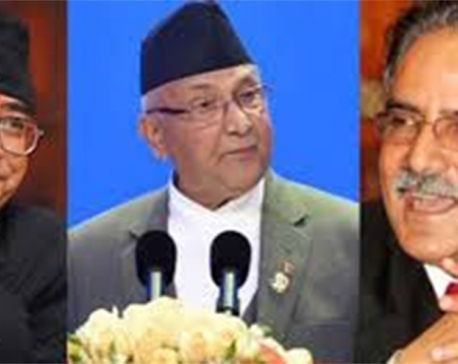
Changing storytellers
Nepali people are tired of self-declared great storytellers of mainstream political parties and actors who are already past their prime Read More...
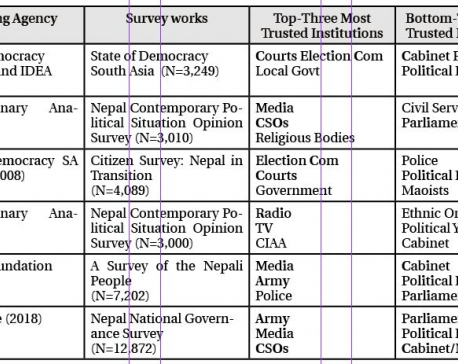
Symptoms of decay
Political parties, parliamentarians and government ministers feature as the most distrustful institutions in almost all surveys ... Read More...
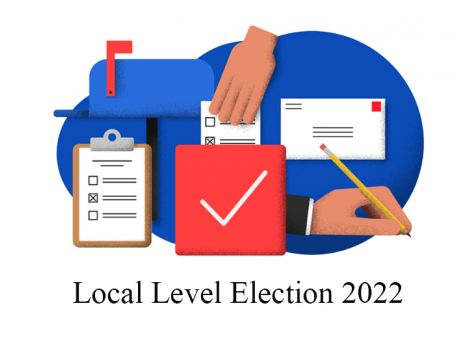
CPN (Maoist Center) candidate elected Mayor of Belkotgadhi
NUWAKOT, May 21: Jag Bahadur Gurung of the CPN (Maoist Center) has been elected as the mayor of Belkotgadhi Municipality,... Read More...

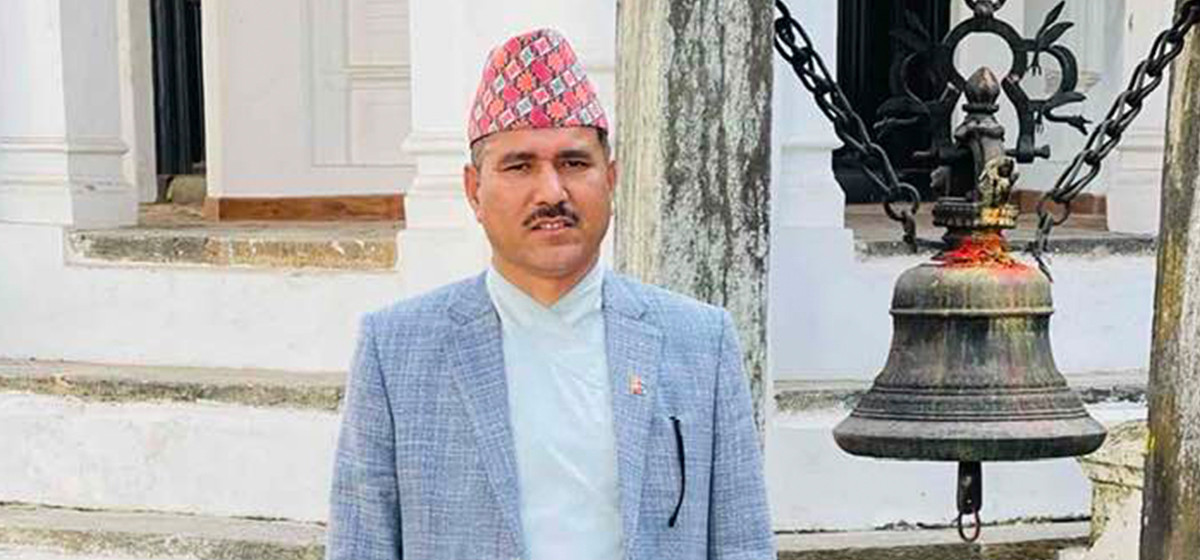
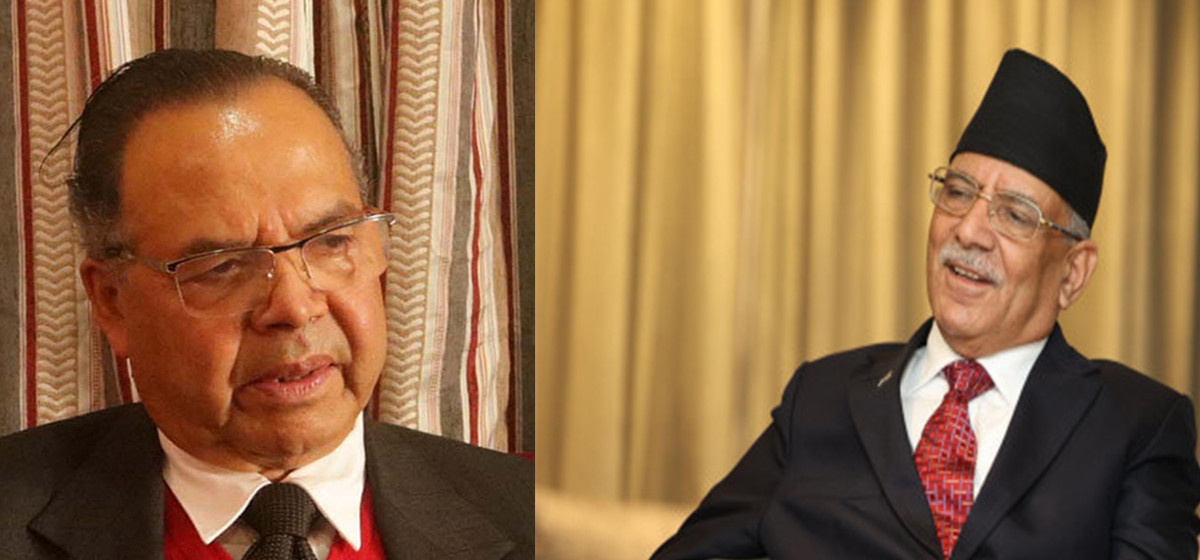
Just In
- China's economy grew 5.3% in first quarter, beating expectations
- Nepal-Bangladesh foreign office consultations taking place tomorrow
- Kathmandu once again ranked as world’s second most-polluted city
- PHC endorses Raya as Auditor General
- PM Dahal and ex-PM Khanal meet
- Revised report on job specification submitted to PM
- Home ministry recommends Joshi and Dhakal for promotion to AIG
- Madhesh CM Yadav to seek vote of confidence today



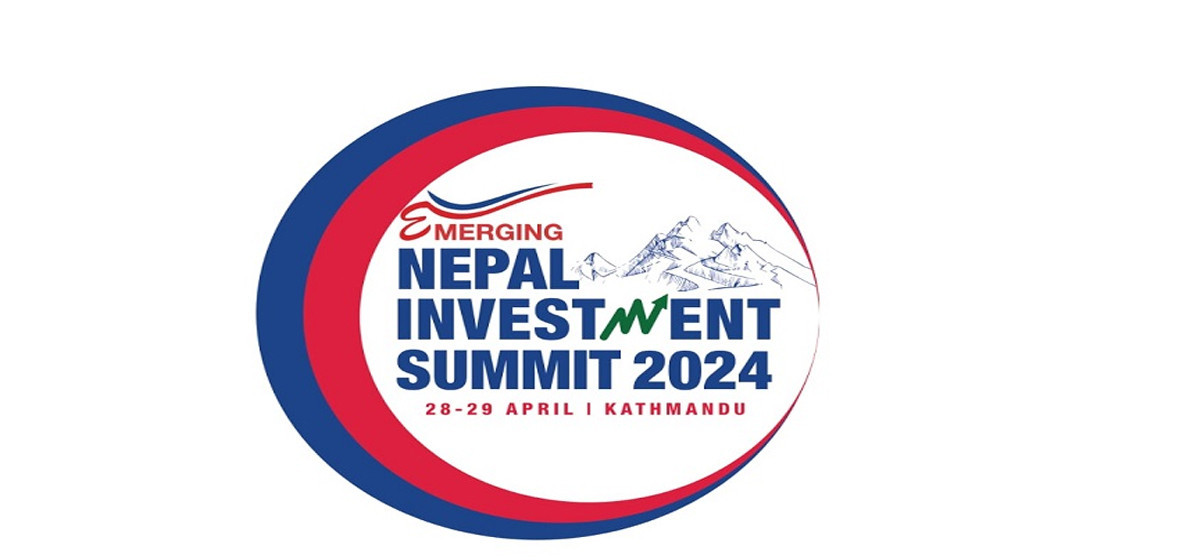
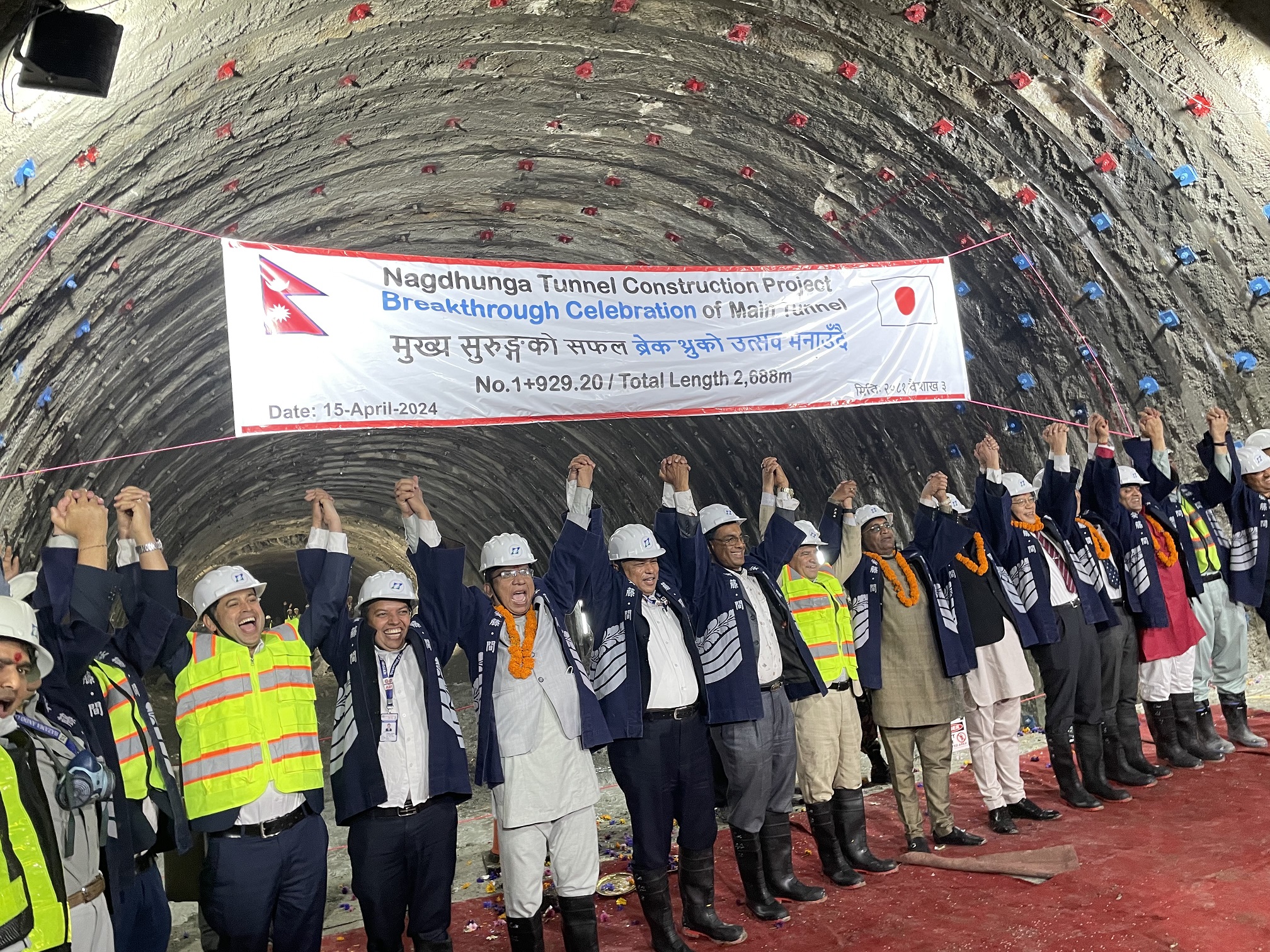



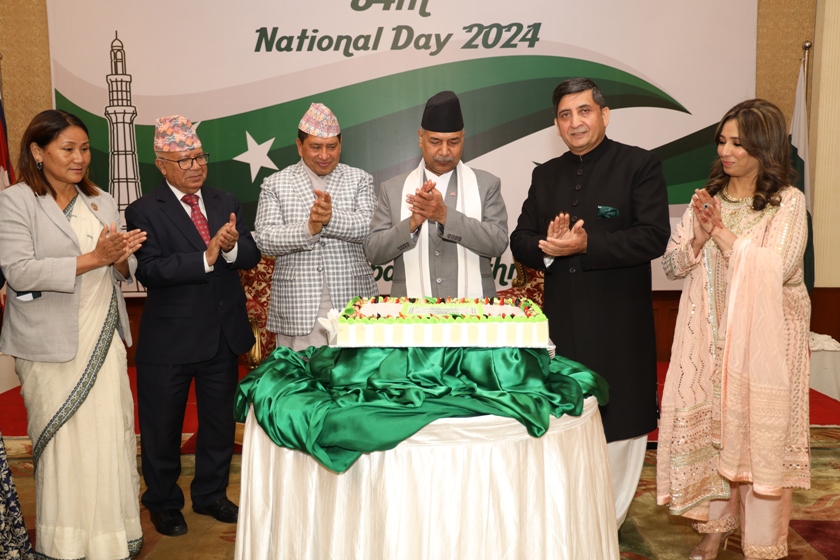


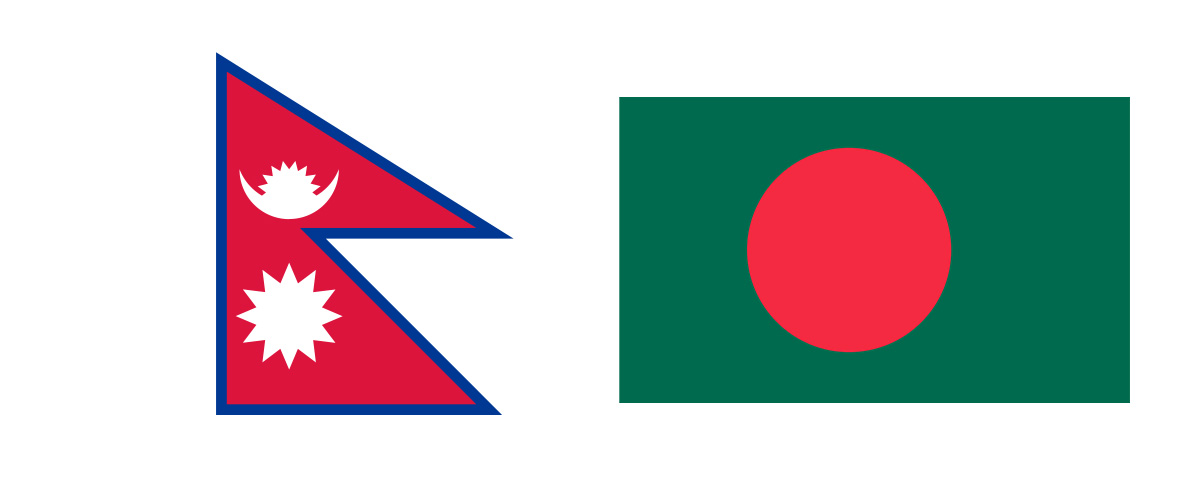

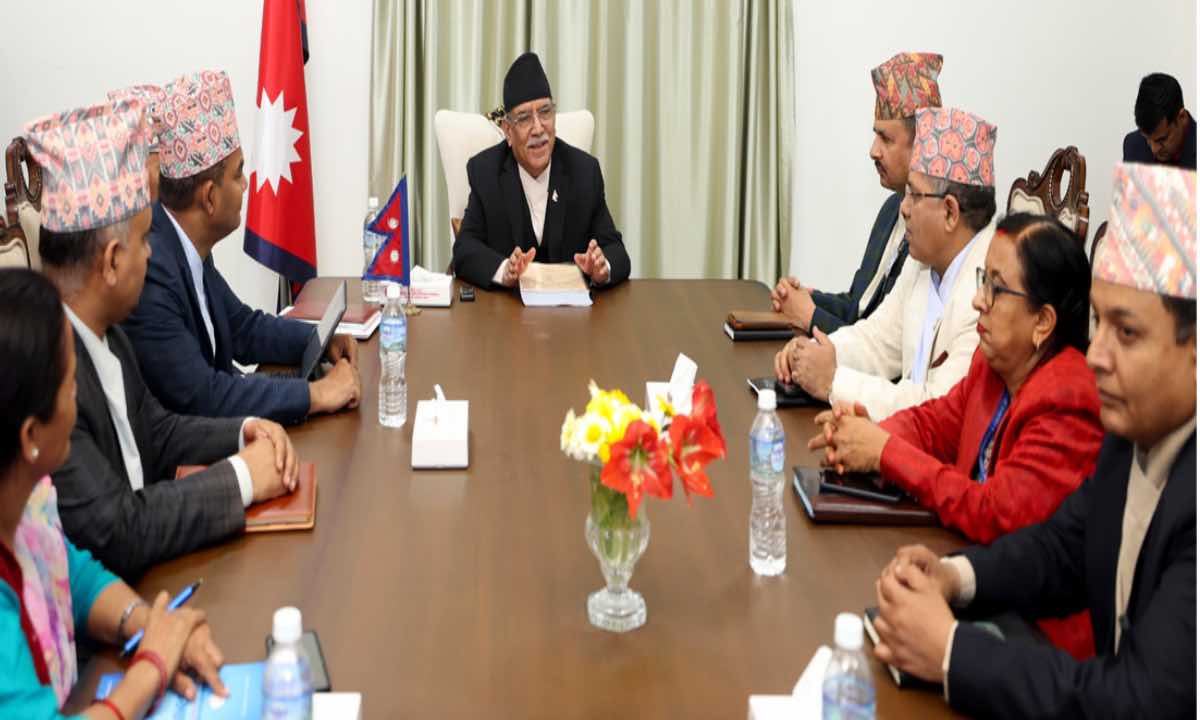
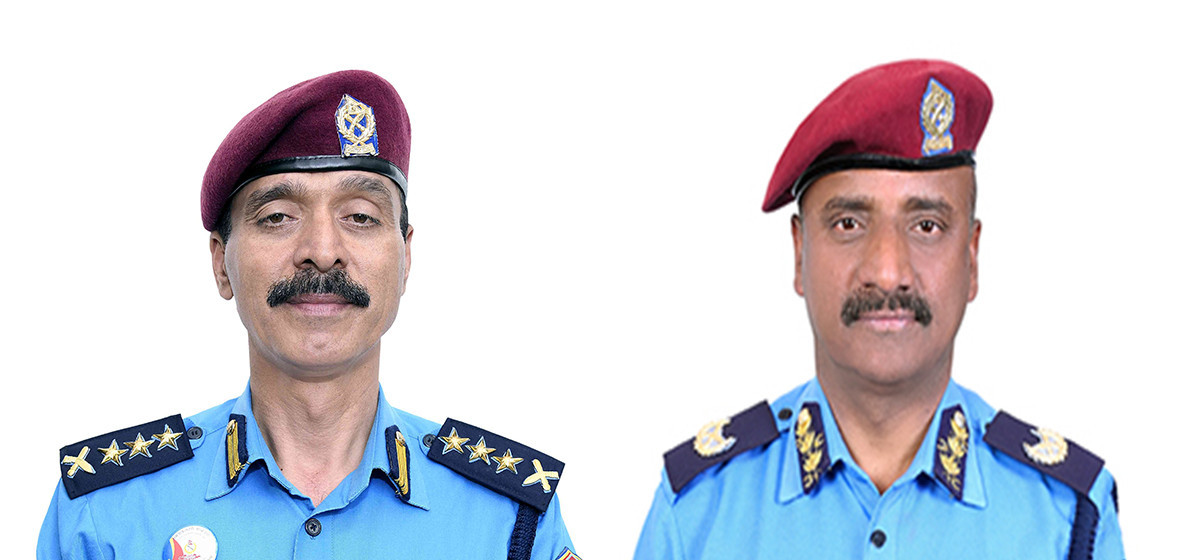
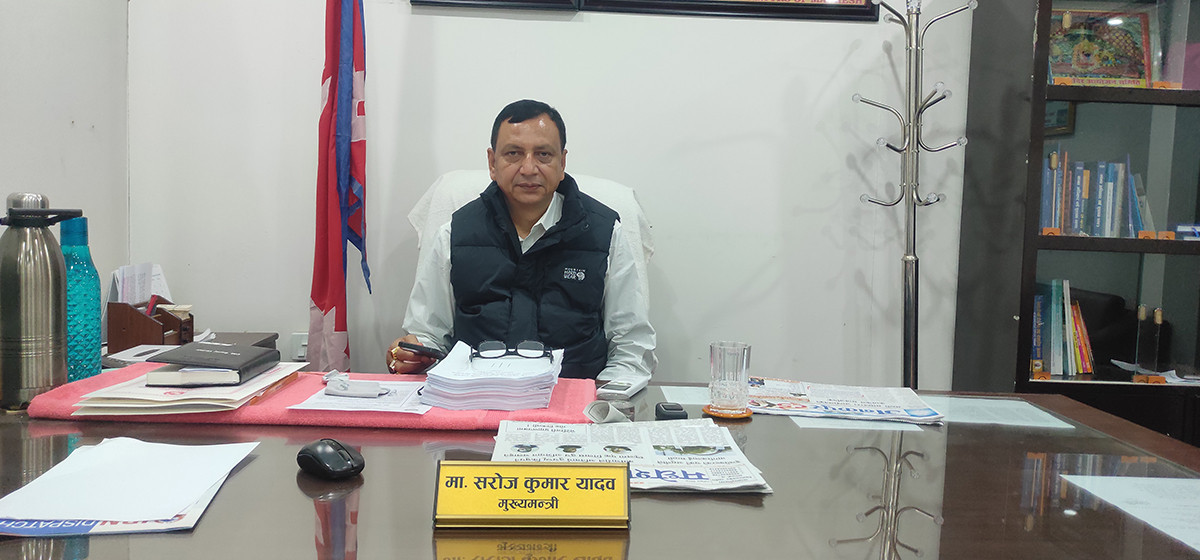
Leave A Comment